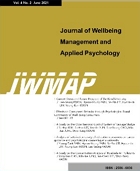The Role of Transformational Leadership in Holistic Well-being of Vietnamese International Students: Focusing on Improving Adaptation and Satisfaction in Korean Universities
LEEBum-Suk(Bum-Suk LEE) (Department of Coaching Sciences, Adjunct Professor, Kyung Hee University Graduate School of Business)
Abstract
This study explores the role of transformational leadership in promoting the holistic well-being of Vietnamese international students, with a specific focus on improving their college life adaptation and satisfaction in Korean universities. The research examines the structural relationships between transformational leadership, college life adaptation, and satisfaction among 297 Vietnamese international students attending seven universities in Seoul, Korea. The findings indicate that while charisma, a key component of transformational leadership, did not significantly influence either college life adaptation or satisfaction, motivation and intellectual stimulation positively affected college life adaptation, and motivation and individualized consideration enhanced college life satisfaction. The limited impact of charisma may reflect cultural and contextual factors, as Vietnamese students from collectivist cultures often prioritize practical and emotional support over symbolic or inspirational traits. Furthermore, the unique academic and social challenges faced in Korean universities may diminish the relevance of charisma relative to other leadership components. These findings suggest that enhancing motivation and intellectual stimulation can improve adaptation to college life, while focusing on individualized consideration can directly increase satisfaction. Moreover, the results hold broader relevance for international students from diverse cultural backgrounds who face similar challenges, underscoring the importance of culturally sensitive leadership and support strategies. This study provides valuable insights for the development of culturally responsive teaching and support systems in Korean universities to enhance the holistic well-being of Vietnamese international students throughout their academic journey.
- keywords
- Transformational Leadership, Vietnamese International Students, College Life Adaptation, College Life Satisfaction
- 다운로드 수
- 조회수
- 0KCI 피인용수
- 0WOS 피인용수















